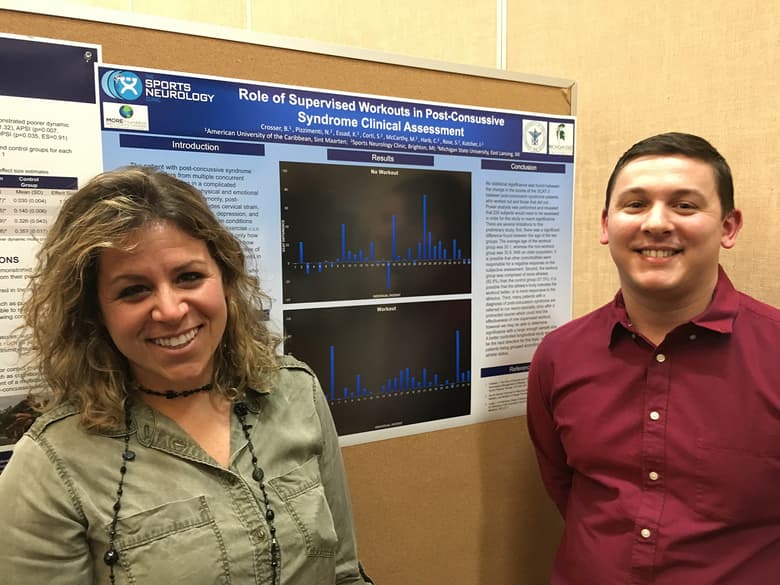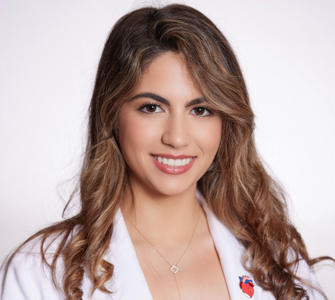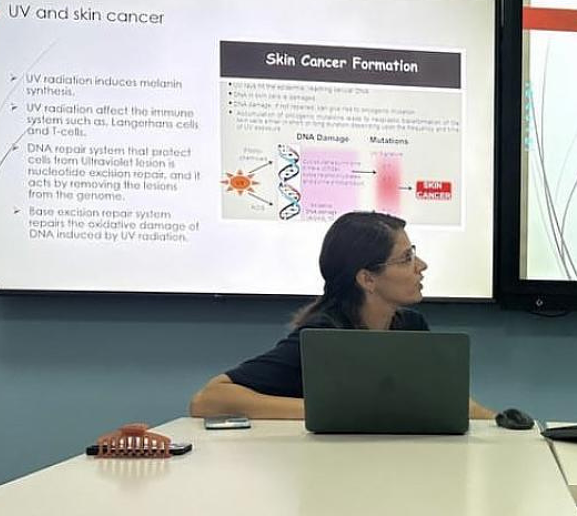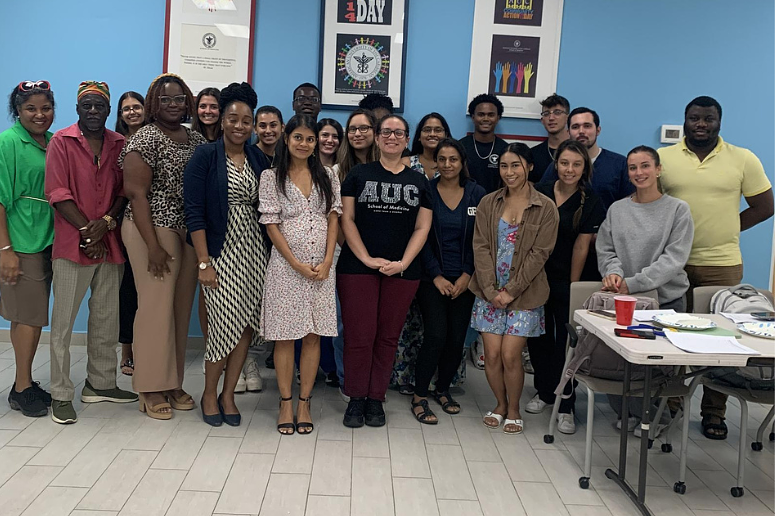His work, which studied the impact of exercise on patients with post-concussive syndrome, was a collaborative effort with another member of the AUC community, alumna Dr. Katie Essad (Class of ’12).
After traveling to a new place, networking, and representing AUC, Brian sat down with us to share his experience and reflect on the importance of research while in medical school.

Dr. Katie Essad pictured on the left with third year student Brian Crosser on the right.
Tell us about the research you presented…
People with post-concussive syndrome typically suffer from physical and emotional strain: cervical pain, headache disorders, anxiety, depression, sleep disorders, etc. These conditions are known to improve with exercise so we wanted to study perceived progress among patients who exercised compared to those who did not.
We accessed patient charts from more than 900 patient encounters and found 62 individuals with the post-concussion syndrome—about half of whom received supervised workouts as part of their visit. After reviewing their encounters, we found no statistical significance between in SCAT-3 (Sport Concussion Assessment Tool) scores between patients who worked out and those who did not.
There were several limitations with the study: different age averages among each group, comorbidities, varying athleticism, etc. If we had a larger sample size, we could have found statistical significance between the workout group and the control group. That will have to wait for a future study!
How did you get involved with this research?
Dr. Patricia Obando, the Director of Student Programs at Providence Hospital where I am currently rotating, sent out an email looking for students interested in a research opportunity at the Sports Neurology Clinic in Brighton, Michigan. I had been hoping to get involved with research—ultimately looking to present and be published—and this project seemed to have that potential.
Before medical school, I worked as a physical therapy technician and had the opportunity to see how exercise improves peoples’ physical wellbeing. While at AUC, I’ve learned more about the psychosocial aspect of care and I am really interested in how patients perceive their improvement beyond what was discernible on a physical exam.
What were some of your biggest takeaways from this project?
It was really impactful to see how well-documented patient encounters can be turned into important research. Using the charts from past patients, we were able to systematically go through more than 900 patient encounters and record important details from each one. That allowed me to construct a list of patients with the post-concussive syndrome who had been seen on the first visit, had returned for a follow-up visit, and had filled out the SCAT-3 subjective symptom checklist both times.
What would you do differently with a follow-up study?
We would like to separate the patients into groups using age, as well as athleticism. People who are trained athletes might, in fact, feel a greater responsibility to care when under direct supervision in the clinic rather than being discharged home to workout in their sport setting. People of increasing age may harbor more comorbidities than a young cohort, making them less prone to report an improvement in their symptoms. Those patients may not benefit from supervised workouts as much and may be better suited with a brief visit focused on the patient interview and physical exam.
Why is it important for medical students to do research?
I’ve been told by program directors that research experience can be particularly important for your residency application. Some residency programs actually require research in order to be considered. But just as important is the competency that doing research builds for the student: critical thinking, evidence-based medicine, the scientific method, etc. Students should make every effort to voice their interest in performing research to all those who will listen, especially during their third year.
Many residents are expected to do research as part of their contract. I’ve found that they are more than happy to take on an eager medical student who is willing to relieve their workload. Students should be sure to ask their residents about any current studies that are being conducted.
If you are ever invited to present at a conference, don’t be shy about asking your program director for the time off to do so. Most are happy to hear about your accomplishments. Even without a publication, just presenting your research at a conference is enough to put on your resume. It may not seem like much but it is a way for you to avoid leaving a box blank on your application. It may, in fact, be the one thing that puts you ahead of the competition!




